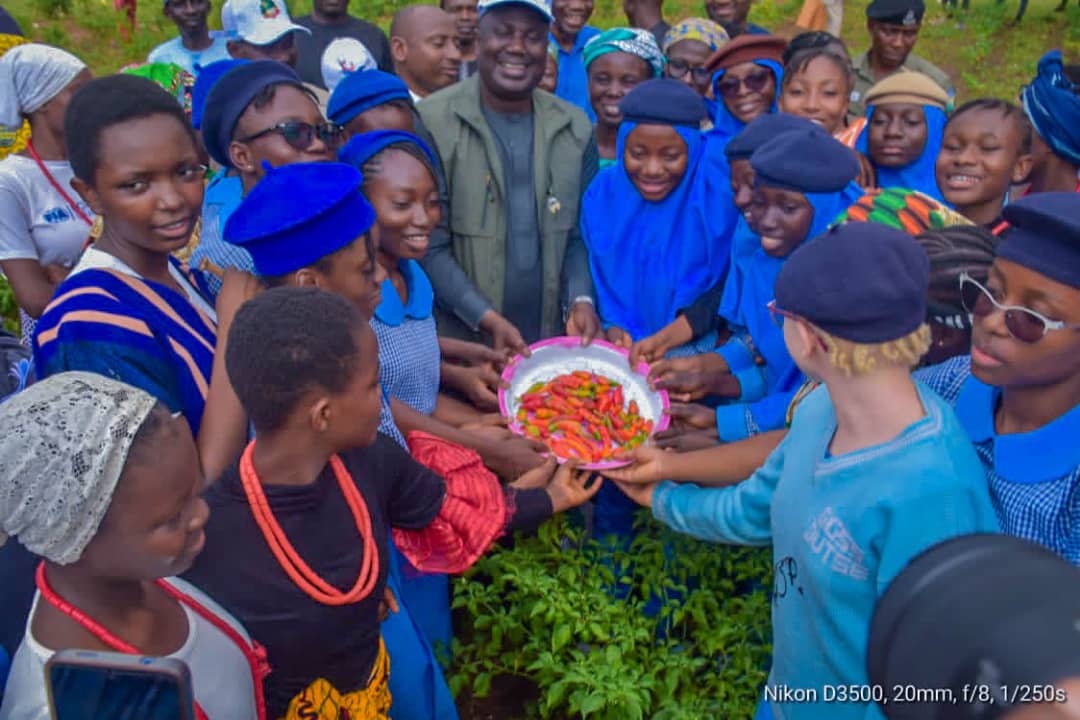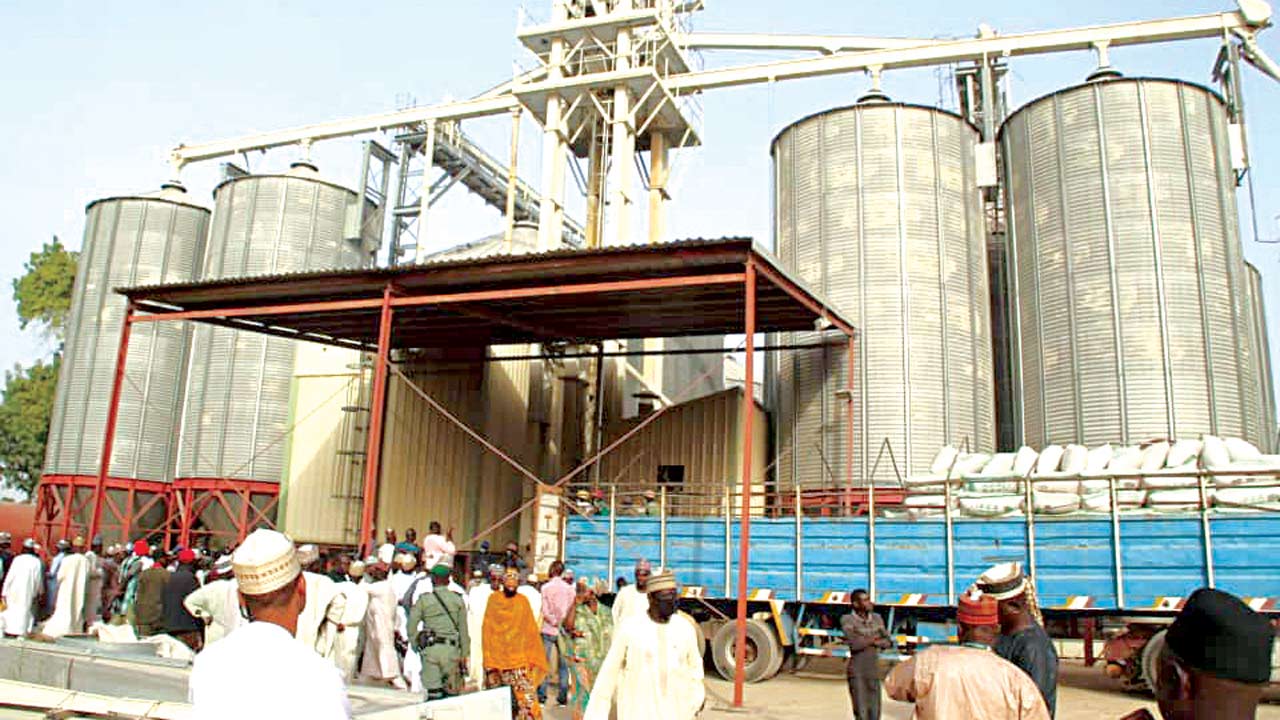Despite disappointment in agriculture sector the federal government has said that it is targeting the cultivation of 500,000 hectares of farmland across the country. The objective is to grow rice, maize, wheat, millet and other staple crops. This is part of the plan to boost food production and supply, in order to combat food insecurity in the country.
The plan was disclosed by the Minister of State for Agriculture and Food Security, (FMAFS) Aliyu Abdullahi, on Thursday on Thursday in Abuja, the federal capital territory.
Abdullahi said this during activities to to mark World Food Day 2024. The theme for this year is “The right to food for a better life and a better Future”. H said that staple food production was necessary citing the 2017 global agricultural achievement. Nigeria in 2017, recorded significant achievement in the global agricultural sector, by ranking first in cassava and yam production with 59.4 million tons and 47.9 million tons, respectively.
The country also ranked 14th in Maize production with 10.42 million tons and 4th in Palm oil with 7.7 million tons in the same year. While in 2019, Nigeria became the largest producer of rice in Africa with a production level of 9 million metric tons, this milestone, Abdullahi said “Is a true testimony of our overall commitment to boosting agriculture and providing sufficient food to the teeming population.”
Building on the momentum to end hunger and promote sustainable agriculture, he said, “This year, the Nigerian government has ordered for the immediate release of more than 102,000 metric tons of Maize, Millet, and Garri in addition to other food commodities from the National Food Reserve to Nigerians as a temporary response to the nation’s rising cost of food.

“The administration has also resorted to importing some food commodities as an interim measure to augment food shortages.
“The government is prioritising mechanised farming to accelerate agricultural production and promote economic growth.
“This administration has outlined plans to cultivate 500,000 hectares of farmlands across the country to grow maize, rice, wheat, millet, and other staple crops to boost food supply and affordability”.
The minister said It is the resolve of the present administration to develop the agricultural sector towards the attainment of the objectives of the Sustainable Development Goals (SDGs) especially those of zero hunger and to improve agriculture and rural productivity.
He pointed out that economic opportunities are being enhanced for the inclusive participation of small and marginal farmers, women, and youths to create jobs, reduce poverty, and boost economic growth.
Citing that “Agriculture remains a potent tool to fight hunger, poverty, and unemployment. It is against this backdrop that we wish to reiterate our commitment to reducing these menace and ensuring prosperity for all Nigerians”.
In his remarks, the Assistant Country Representative of the Food and Agriculture Organization, (FAO), Salisu Mohammed recalled the March 2024 Cadre Harmonise which projected that 31.8 million people in Nigeria were at risk of food insecurity, and just recently, the country was hit by yet another devastating flood.
He said, “Across Nigeria, an estimated food loss is about 855, 629 metric tonnes, which is equivalent to the amount of food which could feed 8.5 million people for six months, Nigeria will face adversities again but there are solutions if we work together.”
He, therefore, advised the Ministry to provide an enabling environment for food production. The National President, of the All Farmers Association of Nigeria, (AFAN), Kabiru Ibrahim also called on the government to incentivise farmers and give them support to produce more food for Nigerians, a statement the Chief Information Officer FMAFS Eremah Anthonia read.












